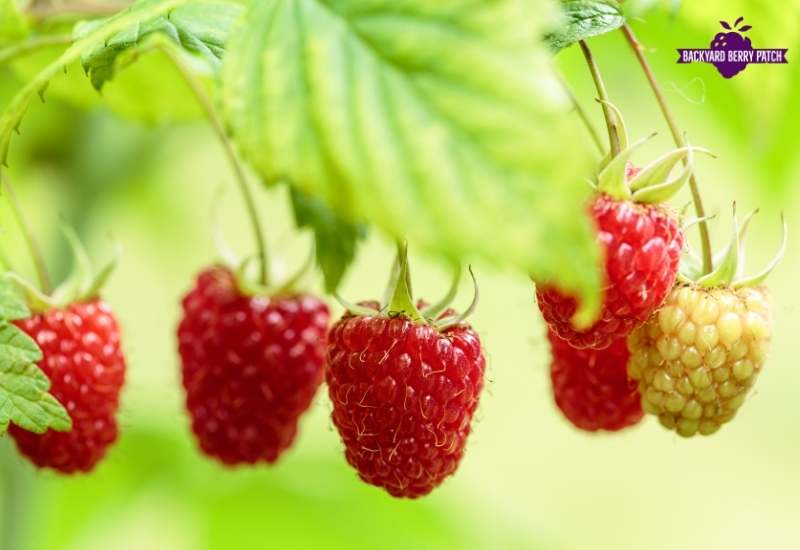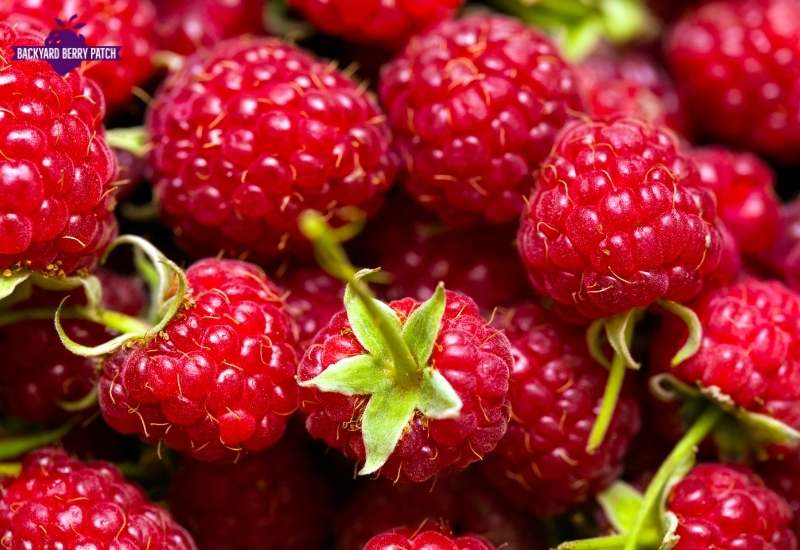Growing raspberries in Georgia can be a sweet and rewarding experience. You can enjoy fresh, juicy berries right from your backyard. These tasty fruits are perfect for snacking, baking, or making jams.
The best raspberries to grow in Georgia are Heritage, Dorman Red, and Southland varieties. These types do well in the state’s climate and soil. You can plant raspberries in early spring or late fall in Georgia. This gives the plants time to settle in before extreme temperatures hit.
When planting raspberries, pick a sunny spot in your yard. Space the plants 18 inches apart to give them room to grow. Good air flow helps prevent disease. Make sure the soil drains well.
With a little care, you’ll soon have a thriving raspberry patch in your Georgia garden.
Georgia Climate And Soil Overview
Georgia’s climate is perfect for growing raspberries. You’ll find warm summers and mild winters in most parts of the state. The growing season is long, giving your berries plenty of time to ripen.
Soil is key for happy raspberries. You want well-drained soil rich in organic matter. Sandy loam or clay loam works great.
Before planting, test your soil. Aim for a pH between 5.5 and 6.5.

Rainfall in Georgia varies. You might need to water your raspberries during dry spells. Keep the soil moist but not soggy. Mulch helps retain moisture and control weeds.
Watch out for summer heat! Raspberries don’t love extreme temperatures. Provide some shade if needed. In winter, your plants might need protection from sudden cold snaps.
Pests and diseases can be tricky. Japanese beetles love raspberries. Keep an eye out for fungal diseases too. Good air circulation helps prevent problems.
Recommended Thornless Raspberry Varieties In Georgia
If you’re looking to grow raspberries without the prickles, you’re in luck! Georgia gardeners have several thornless options to choose from.
One popular choice is the Heritage raspberry. This variety produces fruit twice a year and is easy to grow. You’ll enjoy sweet red berries in summer and fall.
Another great option is the Anne raspberry. It bears yellow fruits that are large and flavorful. Anne plants are vigorous and can produce high yields in your garden.
For those who prefer darker berries, try the Jewel black raspberry. It’s known for its rich flavor and glossy appearance.
Here’s a quick comparison of these thornless varieties:
| Variety | Color | Harvest Time |
|---|---|---|
| Heritage | Red | Summer & Fall |
| Anne | Yellow | Late Summer |
| Jewel | Black | Mid-Summer |
When planting these varieties, remember to provide support. A simple trellis or fence can help your plants grow upright and make harvesting easier.
You can even grow thornless raspberries in containers if you’re short on space. Just make sure the pot is at least 24 inches wide and deep.
Recommended Thorny Raspberry Varieties In Georgia
If you’re looking to grow raspberries in Georgia, there are several thorny varieties that do well in the state’s climate.
‘Heritage’ and ‘Boyne’ are erect raspberry varieties. These cultivars are known for their cold hardiness and tasty fruit. They can thrive in Georgia, especially in the cooler northern parts of the state.

For a trailing variety, ‘Dormanred’ is a good choice. This raspberry grows well in Georgia but needs a wire trellis for support.
When growing raspberries, remember these key points:
- Prune regularly to encourage new growth
- Remove old canes to make room for primocanes
- Ensure good air circulation to prevent disease
Raspberries produce fruit on two-year-old canes called floricanes. Some varieties are fall-bearing, giving you a second crop on first-year canes.
To care for your raspberry plants:
- Water deeply and regularly
- Mulch to retain moisture
- Remove suckers that grow outside your designated row
